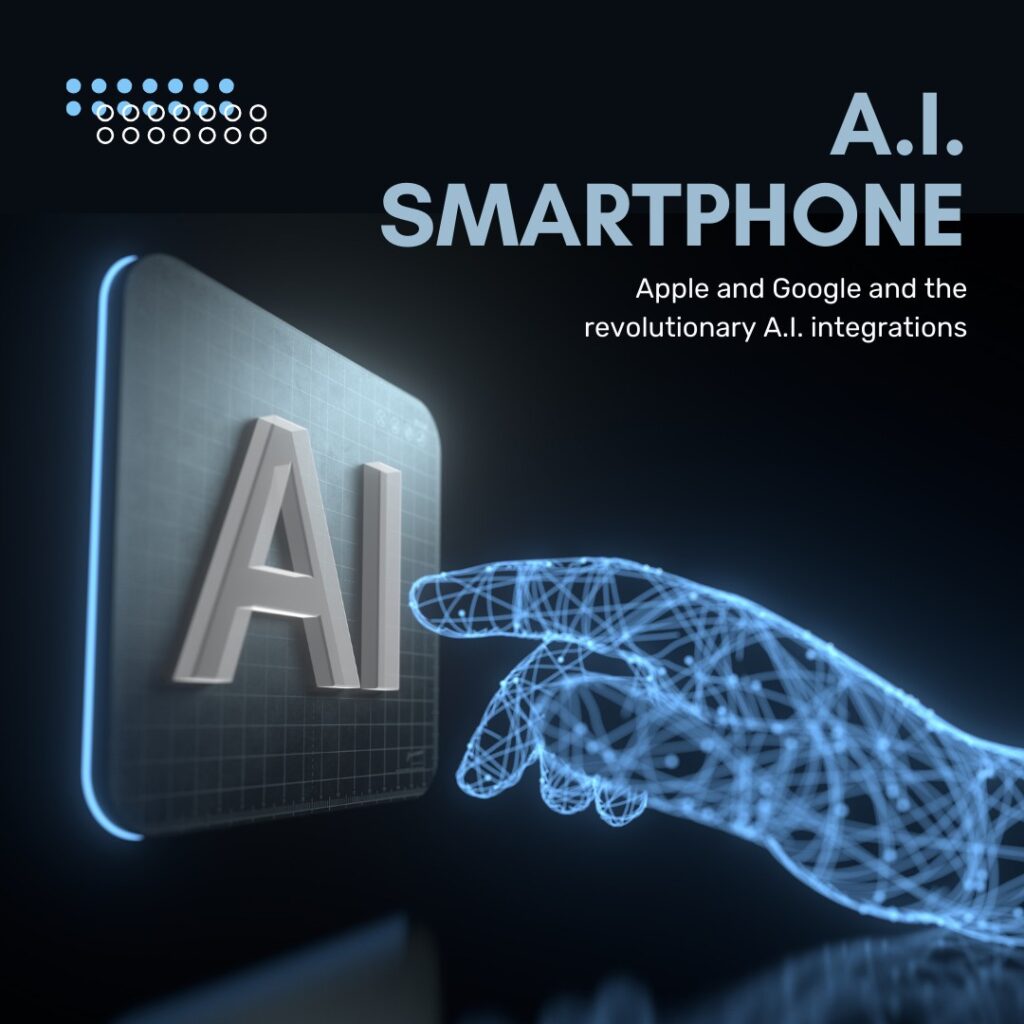Insight 3 min read
Welcome to the Era of the A.I. Smartphone
Apple and Google Transform Smartphones with AI-Powered Features

Revolutionary AI integrations
This year, Apple and Google are set to radically transform the smartphone landscape by integrating advanced artificial intelligence (AI) technologies into their operating systems.
Apple’s upcoming iOS 18, which powers iPhones, introduces a completely revamped Siri, the voice assistant that will now be powered by “Apple Intelligence,” a large language model.
This AI system will enable Siri to engage in more natural conversations, generate images, summarize web articles, and craft personalized responses to text messages and emails.
This major enhancement aims to make the smartphone experience more intuitive and efficient.
Google, following suit, has announced AI-driven features for its Android operating system.
These include a system that automatically summarizes audio transcripts, detects potential scam phone calls, and even assists students with homework.
Both companies are focusing on utilizing AI to make their smartphones smarter, more personal, and more responsive to user needs.
Siri’s AI brain transplant
Apple has fundamentally reworked Siri, transforming it into a more contextually aware and capable assistant.
Powered by Apple Intelligence, Siri will now be able to understand the nuances of conversations, allowing for more fluid interactions.
For example, users can correct themselves mid-sentence, and Siri will still comprehend the request.
This upgrade also allows Siri to perform complex tasks, such as retrieving information from a photo album or generating customized images for messages.
Moreover, Siri’s new AI capabilities will extend to writing and web browsing apps like Mail, Notes, and Safari, where it can proofread text, rewrite it in different styles, or generate summaries of highlighted articles.
These features are part of a broader push by Apple to make Siri not just a virtual assistant, but a versatile tool for various daily tasks.
Google’s Gemini and enhanced Android
Google has been working on Gemini, a new AI assistant available exclusively on its Pixel phones.
Gemini acts as a chatbot, similar to OpenAI’s ChatGPT, capable of generating responses to user prompts, such as writing poems or solving complex problems.
The latest version, Gemini Nano, emphasizes privacy by processing AI tasks directly on the device rather than on Google’s servers.
Key features of Gemini include scam detection during phone calls, which alerts users if the conversation seems suspicious, and an educational tool that helps students solve math and physics problems.
Additionally, Gemini Nano can summarize audio transcripts and rewrite messages in different styles, enhancing the overall functionality of Android devices.
Bridging the messaging divide
One of the most significant updates from Apple is its plan to address the long-standing green bubble versus blue bubble divide in messaging between iPhone and Android users.
In iOS 18, Apple’s Messages app will adopt Rich Communication Services (RCS), a standard that allows for higher-quality images and videos in texts sent between iPhones and Androids.
While texts will still appear as green bubbles when sent to Android devices, the improved quality of shared media will likely encourage more seamless communication across platforms.
Apple also introduces a long-awaited feature in iMessage: the ability to schedule messages.
This update will help users send messages at more appropriate times, respecting others’ schedules and boundaries.
These AI-driven innovations by Apple and Google signify a new era in smartphone technology, where artificial intelligence plays a central role in enhancing user experience and connectivity.
Did you enjoy reading this article? Stay ahead of your time & join us: https://dagora.ch/
